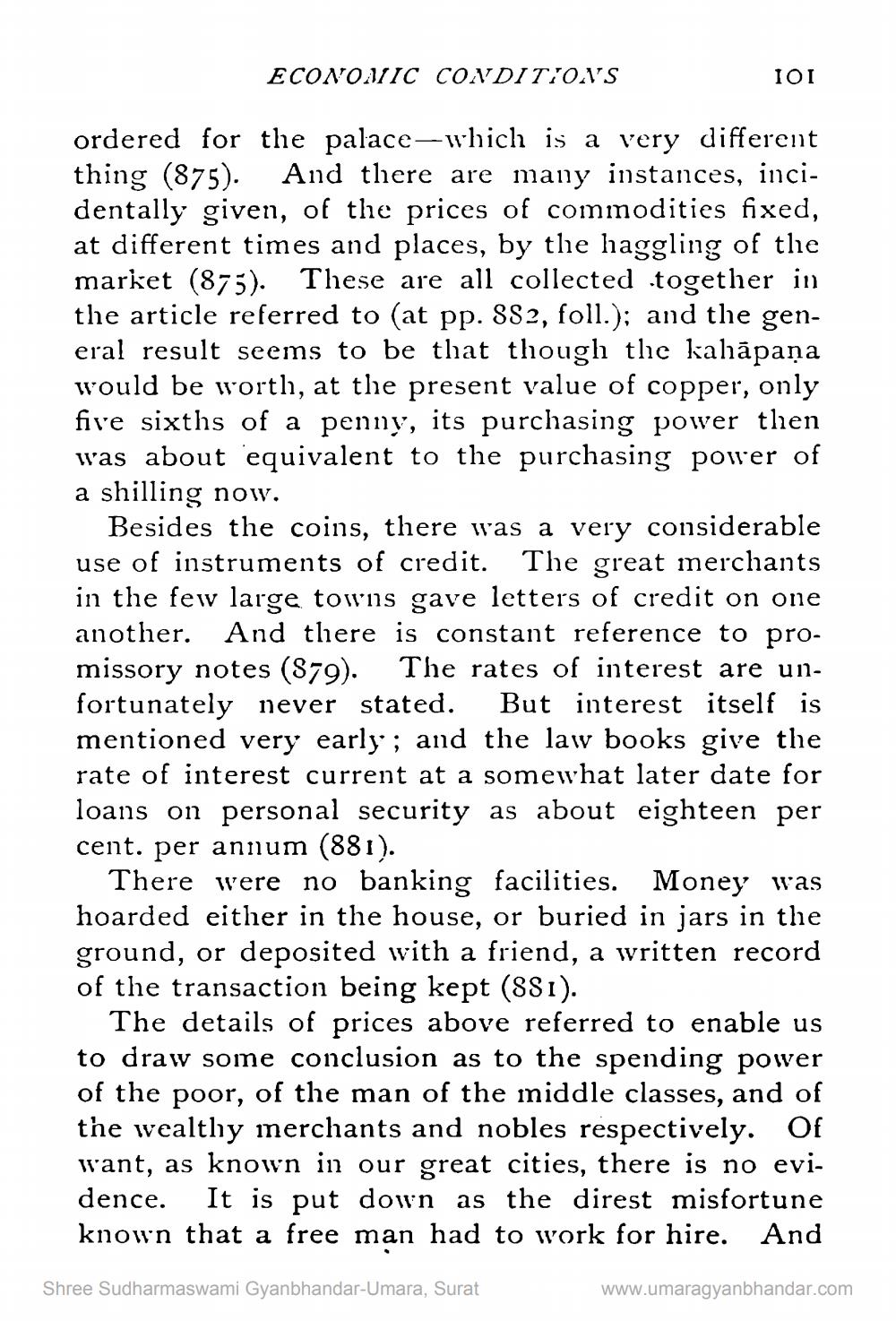________________
ECONOMIC CONDITIONS
1ΟΙ
ordered for the palace-which is a very different thing (875). And there are many instances, incidentally given, of the prices of commodities fixed, at different times and places, by the haggling of the market (875). These are all collected together in the article referred to (at pp. 882, foll.); and the general result seems to be that though the kahāpaṇa would be worth, at the present value of copper, only five sixths of a penny, its purchasing power then was about equivalent to the purchasing power of a shilling now.
Besides the coins, there was a very considerable use of instruments of credit. The great merchants in the few large towns gave letters of credit on one another. And there is constant reference to promissory notes (879). The rates of interest are unfortunately never stated. But interest itself is mentioned very early; and the law books give the rate of interest current at a somewhat later date for loans on personal security as about eighteen per cent. per annum (881).
There were no banking facilities. Money was hoarded either in the house, or buried in jars in the ground, or deposited with a friend, a written record of the transaction being kept (881).
The details of prices above referred to enable us to draw some conclusion as to the spending power of the poor, of the man of the middle classes, and of the wealthy merchants and nobles respectively. Of want, as known in our great cities, there is no evidence. It is put down as the direst misfortune known that a free man had to work for hire. And
Shree Sudharmaswami Gyanbhandar-Umara, Surat
www.umaragyanbhandar.com




